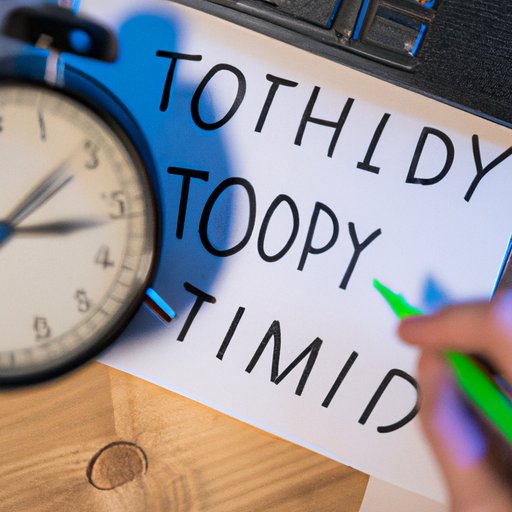
Writing an Essay With ADHD: Tips and Strategies for Success
Writing an essay can be a difficult task for anyone, but it can be especially challenging for those with Attention Deficit Hyperactivity Disorder (ADHD). It requires focus, concentration, and organization, all of which can be difficult for someone with ADHD to achieve. However, by taking the right steps, it is possible to successfully complete a written assignment. Here are some tips and strategies to help you focus and write an essay with ADHD.
Break Down the Essay into Smaller, Manageable Tasks
One of the best ways to tackle a large assignment is to break it down into smaller, more manageable tasks. This is especially true for someone with ADHD, who may find it difficult to focus on one big task for an extended period of time. Breaking the essay down into smaller chunks allows you to focus on one piece at a time, rather than feeling overwhelmed by the entire project. Some tips for breaking down the essay include setting a word count goal for each section, outlining each section before starting to write, and taking regular breaks.

Create a Schedule and Timeline for Completing Each Task
Creating a schedule and timeline for completing each task is an important step in the writing process. This will help keep you on track and ensure that you don’t lose focus or forget to complete certain sections. When setting up a schedule, make sure to give yourself enough time to complete each task, so that you don’t feel rushed or overwhelmed. You might also want to set aside specific times each day to work on the essay, so that you have a consistent routine.
Identify Distractions and Create Strategies to Avoid Them
Distractions can be a major challenge for someone with ADHD, so it’s important to identify potential distractions and create strategies to avoid them. Common distractions include social media, television, and phone calls. To combat these distractions, turn off your phone and computer notifications and put your devices away while you’re working. You might also want to work in a quiet space, away from other people or noisy areas.

Utilize Tools Such as the Pomodoro Technique to Break Up Long Writing Sessions
The Pomodoro Technique is a popular productivity tool that involves breaking up long writing sessions into smaller blocks of time. This helps to keep your focus and prevents burnout. The technique involves setting a timer for 25 minutes and focusing solely on the task at hand until the timer goes off. After the timer goes off, take a short break (5-10 minutes) and then start the timer again. Repeat this process until you’ve completed the task.

Take Frequent Breaks Throughout the Writing Process
Taking frequent breaks is important for maintaining focus and preventing burnout. Breaks can help to clear your mind and give you a chance to recharge. When taking a break, try to do something unrelated to the task, such as going for a walk, listening to music, or chatting with a friend. Make sure to limit your break to just a few minutes, so that you don’t lose focus.
Try Listening to Music or White Noise to Focus on the Task
Listening to music or white noise can be a great way to stay focused on the task at hand. Music can help to calm nerves and clear the mind, while white noise can help to block out distracting background noises. Experiment with different types of music and sounds to find the ones that work best for you.
Seek Professional Help If Needed
If you’re struggling to focus on the task or feel overwhelmed, it’s important to seek professional help. A therapist or coach can provide valuable guidance and support to help you stay on track and complete the essay. They can also help you develop strategies for dealing with distractions and staying organized.
Conclusion
Writing an essay with ADHD can be a challenging task, but it is not impossible. By breaking down the essay into smaller tasks, creating a schedule and timeline, avoiding distractions, utilizing tools such as the Pomodoro Technique, taking frequent breaks, listening to music or white noise, and seeking professional help if needed, you can increase your chances of success. With the right approach, you can write an essay that meets your goals and exceeds expectations.
(Note: Is this article not meeting your expectations? Do you have knowledge or insights to share? Unlock new opportunities and expand your reach by joining our authors team. Click Registration to join us and share your expertise with our readers.)
